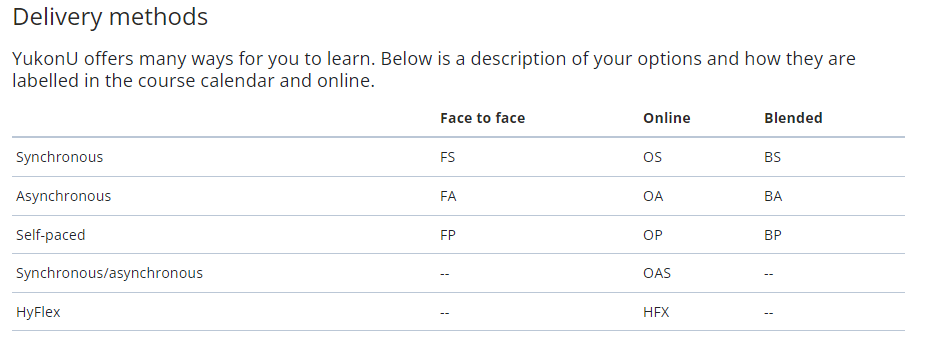Find your passion! Discover your future!
What does your future hold? Not sure?
Explore courses in academic and professional disciplines that include humanities like literature, history, philosophy, social sciences like anthropology, sociology or psychology, business administration or political science, and natural sciences like astronomy, biology, geography, geology, and environmental studies, among others.
Learn what moves you and take off from there!
General Studies
We offer courses both face-to-face and online. Some courses may have weekly scheduled video-conferenced sessions, while others may run entirely in person or in a combination. See the course pages and course outlines for details. Spring courses run online for broadest accessibility.
Contact the School of Social Sciences and Humanities or a program advisor for assistance or for more information about our programs and courses.
The General Studies programs integrate general knowledge and intellectual skills with specific occupational or professional skills. They are designed and intended for those who do not plan on pursuing a university degree or those who wish to develop an individualized program from a variety of programming areas at the University.
Students who wish to complete a university degree at a later time are encouraged either to limit their choices in the General Studies programs to courses in the School of Social Sciences and Humanities and School of Science or to pursue a Social Sciences and Humanities certificate or diploma.
To graduate, certificate students must
- complete ENGL 100 and ENGL 101 (6 credits)
- complete eight electives (24 credits), including a minimum of two Social Sciences and Humanities, Science or university-transferable electives (Note: 060-level courses and lower will not apply) (6 credits)
In addition, certificate students must
- demonstrate Yukon First Nations Core Competency
- complete at least 50% of the work at Yukon University
- maintain a cumulative GPA of 2.0 (C average)
Diploma students must
- complete all certificate requirements (30 credits)
- complete ten electives (30 credits), including a minimum of four Social Sciences and Humanities, Science or university-transferable electives (Note: 060-level courses and lower will not apply) (12 credits)
In addition, diploma students must
- complete a minimum of six courses (18 credits) beyond the 100 level (i.e., courses numbered 200 and above)
- complete at least 50% of the work at Yukon University
- maintain a cumulative GPA of 2.0 (C average)
IMPORTANT NOTE ABOUT LIBERAL ARTS/SCIENCE AND OPEN ELECTIVES: General Studies certificate students may take up to 18 credits, and diploma students up to 36 credits, from outside the School of Social Sciences and Humanities and School of Science (but excluding Continuing Education).
However, students must recognize that such coursework may not be transferable to programs at other post-secondary institutions and may result in a credit shortfall upon transfer. Students working towards a degree or college program at another institution or planning to continue in the future should check their course selection with a Program Advisor.
Yukon University recognizes that a greater understanding and awareness of Yukon First Nations history, culture and journey towards self-determination will help to build positive relationships among all Yukon citizens. As a result, you will be required to achieve core competency in knowledge of Yukon First Nations.
For details, visit Yukon First Nations Core Competency.
For transfer information on a specific Yukon University course, click on the program’s course list tab, select the course in question by clicking its link, and then click the check the BC Transfer Options link on the course’s information page. For additional information, consult a Program Advisor.
Any undergraduate-level Yukon University course that is part of the British Columbia Council on Admission and Transfer (BCCAT) system is eligible for dual credit. Many courses in the School of Social Sciences and Humanities are suitable for high-school students to take as dual credit courses providing any prerequisites are met.
Students have often selected ENGL 100, HIST 140, PSYC 100, PSYC 101, and SOCI 100 for dual credit, but many other first-year courses and some second-year courses are options. Beginning in Fall 2023, ENGL 101 is available.
For more information about dual credit for Yukon high-school students, see the Dual Credit program page.
Fees
Tuition for credit programs is calculated per course credit. See Money Matters for more information.
Some programs and courses have additional fees - see Ancillary Fees.
Student financial awards
Education is an investment in your future, your family and your community. Yukon University is pleased to support that investment by offering some of the most competitive tuition rates in the country, as well as several student financial awards to help offset your educational and living costs.
Financial assistance
There are government programs, scholarships, bursaries, awards and First Nation funding available to financially support you throughout your academic career.
See money matters for more information, or talk to our financial advising staff in the Student Services Centre. Email or call 867 456 8574 to make an appointment.

Source: Registering for academic courses
Face to face
Denoted by an F in the first letter of the delivery code (e.g., FS, FA, FP).
Students and the instructors are present in the same physical location for class time, in a classroom, lecture theatre or another learning environment.
Online
Denoted by an O in the first letter of the delivery code (e.g., OS, OA, OP).
Students and instructor connect through online tools and are not required to be in the same physical space for any portion of the course. Students access and submit all coursework over the Internet.
Blended
Denoted by a B in the first letter of the delivery code (e.g., BS, BA, BP).
Includes a combination of online and face-to-face learning activities and may require connecting with instructors and other students at specific scheduled times throughout the course. For example, students might complete online assignments by a certain date, then meet on-site or online for additional learning activities.
Synchronous
Denoted by an S in the second letter of the delivery code (e.g., FS, OS, BS).
Meaning "at the same time." Students are expected to participate in course activities at specific scheduled times, either on-line through web conference or in in-person sessions.
Asynchronous
Denoted by an A in the second letter of the delivery code (e.g., FA, OA, BA).
Meaning "not at the same time," i.e., meeting times are not a factor. Students are not required to connect with instructors and other students at specific scheduled times but must submit course work according to a schedule set by the instructor, often weekly. Meeting times may be scheduled between instructor and students or between students as needed throughout the course.
Self-paced
Denoted by a P in the second letter of the delivery code (e.g., FP, OP, BP).
Students are not required to connect with instructors and other students at specific times and may complete their course work at their own pace within the timeframe of the course, set by the instructor. Meeting times may be scheduled between instructor and students or between students as needed through the course.
Online asynchronous/synchronous
Denoted by an AS in the second and thirds letters of the delivery code (e.g., OAS)
Course is delivered online with a combination of real-time (synchronous) instruction and independent (asynchronous) instruction.
HyFlex
Denoted by HFX
Courses are delivered both in person and online at the same time by the same faculty member. Students can then choose for each and every class meeting whether to participate in the class in person or to join it by web conferencing online.
In all School of Social Sciences and Humanities programs, students may find opportunities to engage in hands-on scholarship and research experiences in and beyond the classroom.
These experiences can enrich learning and help prepare students for future careers or advanced studies. Through scholarship, students develop critical thinking and gain insights into the research process. Working with faculty mentors or on independent projects, students discover new horizons and achieve personal growth.
Yukon University and its academic Senate has adopted the 2019 report of the Scholarly Activity Engagement Team, Scholarly Activity at Yukon University. The following has been excerpted from the report:
OUR DESCRIPTION OF SCHOLARLY ACTIVITY
Scholarly activity is an intentional, sustained process of creating, validating and transferring knowledge. Scholarly activity happens on the land, the water and in the sky, lab, field and all learning spaces; it reaches a relevant audience and engages community.
PRINCIPLES
- We honour many ways of knowing.
- Scholarly work may be created and validated by those who hold many kinds of knowledge, including Indigenous, natural sciences, social sciences and the humanities.
- Scholarly activity calls on critical reflection and ethical consideration at every stage.
- Scholarship builds connections within the university and beyond.
- We differentiate between professional development (inward facing) and scholarly activity (outward facing).
- We recognize that research and scholarship exist within political systems, yet we endeavour to maintain independence and integrity.
